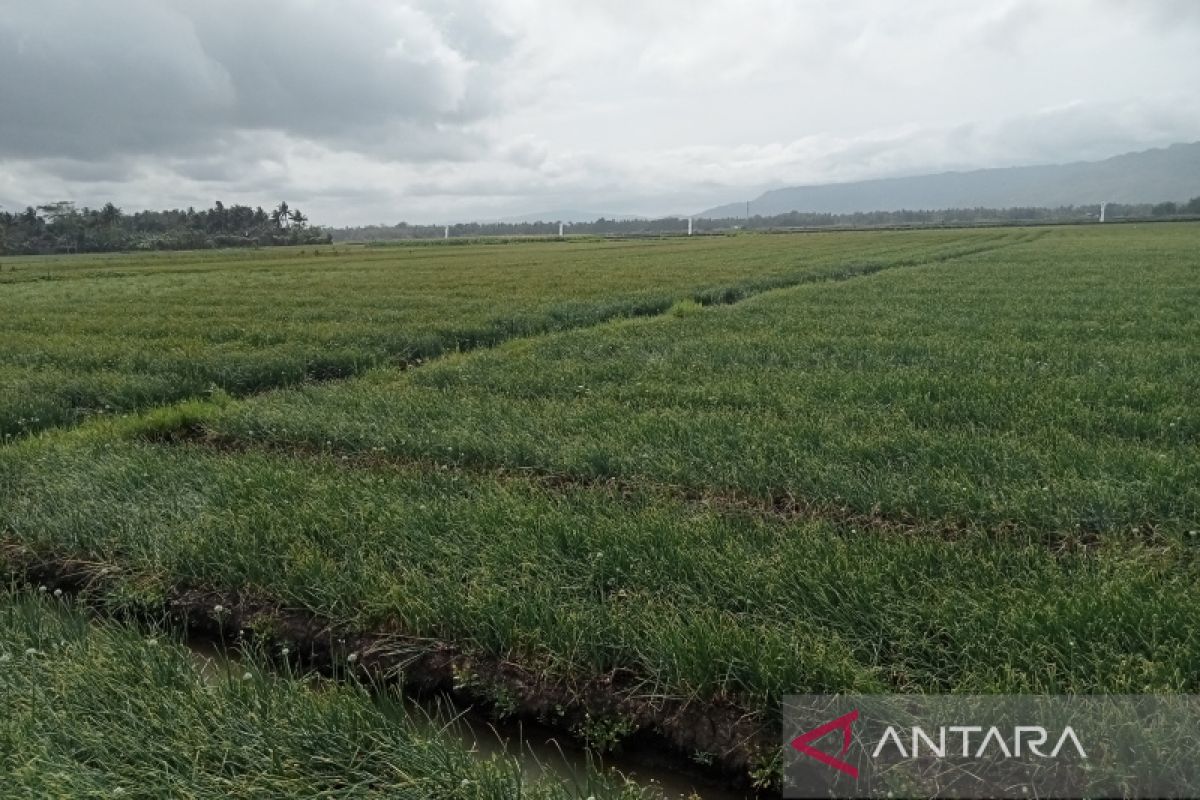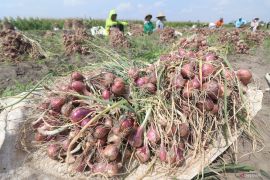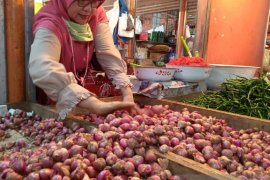"One of the seed problems of which we can provide a solution for is that in every harvest, the farmer is expected to set aside 20 to 30 percent of their harvest," Director of Vegetables and Medicinal Plants at the Directorate General of Horticulture of the Agriculture Ministry, Tommy Nugraha, said in Bantul on Saturday.
He stressed that this measure is necessary so that farmers have their own stock of shallot seeds, considering that Bantul has been found to be one of the best locations for onion farming in the country.
Moreover, if they produce their own seeds, farmers do not need to worry once the planting season arrives and the price of shallot seeds is expensive in the market.
"So, not all of them are sold, but about 20 percent is left for the seeds for the next planting season, because when many farmers need them, the price will automatically increase. When already saving some, the farmers need not worry because they will have their own stock for their own use," he explained.
He said he also expects the regional government to make efforts by establishing adequate shallot warehouses and the right technology for producing quality seeds.
"Depending on how we store it. If we can store it well, know the procedure, what we expect for will be successfully done, the harvest we save will certainly produce maximum results. So, technology equals the availability of the right warehouse," Nugraha added.
Meanwhile, Head of the Bantul Food and Agriculture Security Office Joko Waluyo said that in Bantul—which is one of the shallot growing centers in Yogyakarta, with a harvested area of nearly one thousand hectares per year—farmers face the issue of high price of seeds when planting.
"Seedlings are expensive because farmers usually continue to harvest harvests and buy seeds from outside, yesterday it was Rp110 thousand to Rp120 thousand per kilo, we need to have seeding first so we can supply seeds by ourselves," he added.
Related news: Chili, cayenne pepper, shallot supply recovery causes deflation in Aug
Related news: Farmers Exchange Rate up 1.97% in August: BPS
Related news: BRIN encouraging strengthening of horticultural ecosystem
Translator: Hery Sidik, Mecca Yumna
Editor: Sri Haryati
Copyright © ANTARA 2022












